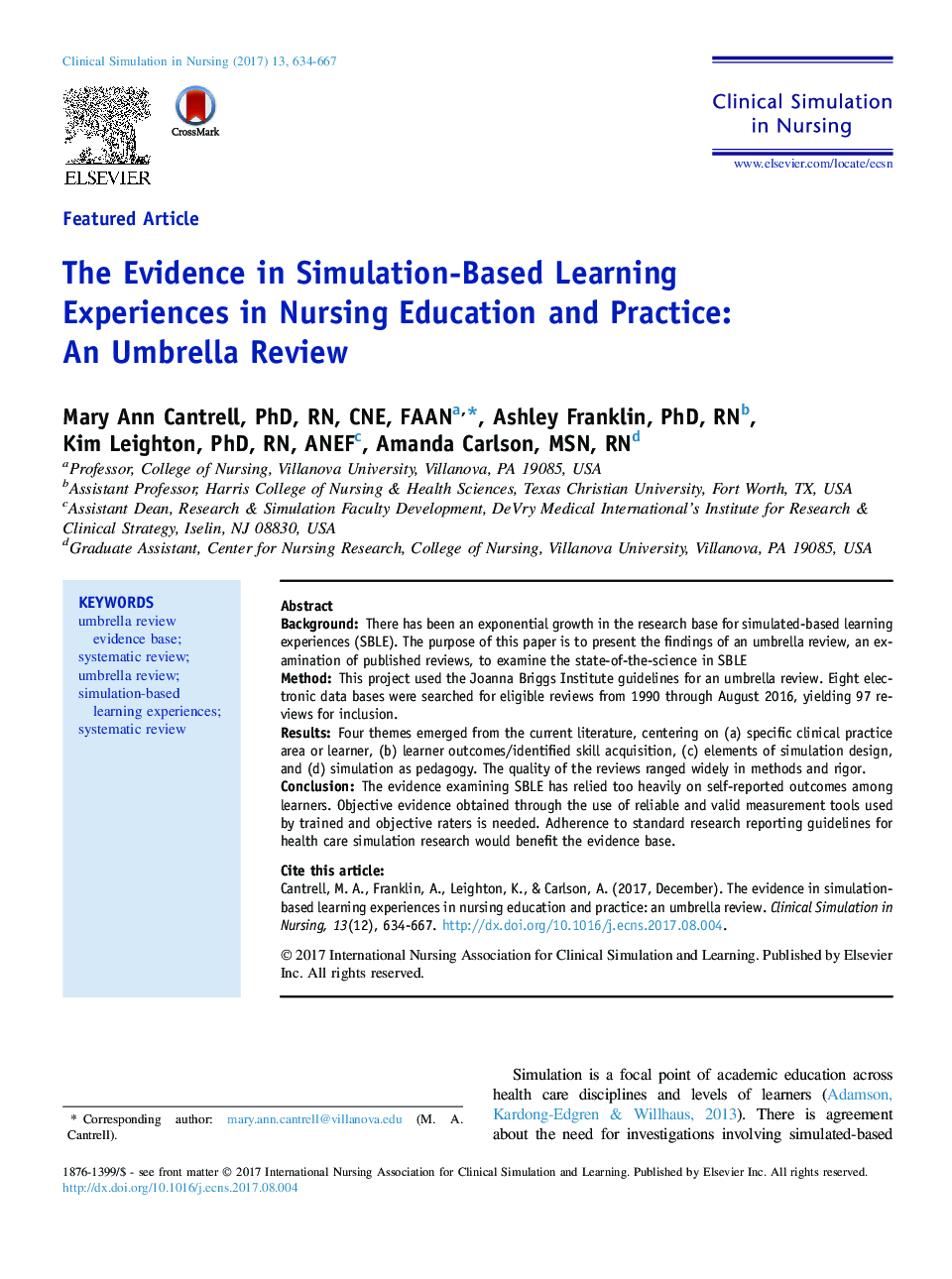| Article ID | Journal | Published Year | Pages | File Type |
|---|---|---|---|---|
| 5567443 | Clinical Simulation in Nursing | 2017 | 34 Pages |
â¢Four themes were identified in this umbrella review: (a) specific clinical practice area or learner, (b) learner outcomes/identified skill acquisition, (c) elements of simulation design, and (d) simulation as pedagogy.â¢There is evidence of increased sophistication in the design methods of simulation studies and of studies being focused on skill transfer to the practice setting, patient safety, and outcomes.â¢This umbrella reviews revealed three needs in simulation-based research: (a) translational research, (b) measures of higher order thinking, and (c) increased methodological rigor in research designs.
BackgroundThere has been an exponential growth in the research base for simulated-based learning experiences (SBLE). The purpose of this paper is to present the findings of an umbrella review, an examination of published reviews, to examine the state-of-the-science in SBLEMethodThis project used the Joanna Briggs Institute guidelines for an umbrella review. Eight electronic data bases were searched for eligible reviews from 1990 through August 2016, yielding 97 reviews for inclusion.ResultsFour themes emerged from the current literature, centering on (a) specific clinical practice area or learner, (b) learner outcomes/identified skill acquisition, (c) elements of simulation design, and (d) simulation as pedagogy. The quality of the reviews ranged widely in methods and rigor.ConclusionThe evidence examining SBLE has relied too heavily on self-reported outcomes among learners. Objective evidence obtained through the use of reliable and valid measurement tools used by trained and objective raters is needed. Adherence to standard research reporting guidelines for health care simulation research would benefit the evidence base.
